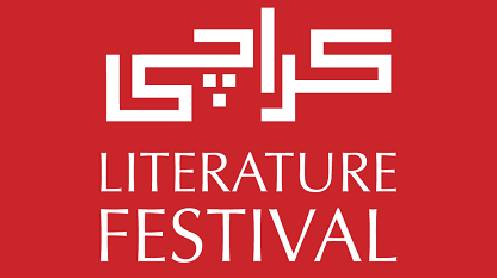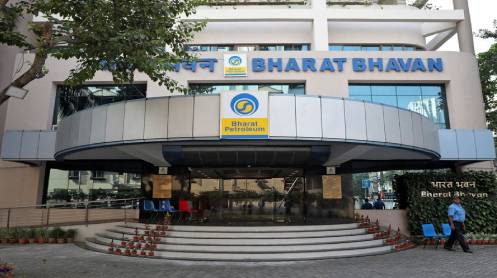The second day of the 14th Karachi Literature Festival (KLF), hosted by the Oxford University Press (OUP) Pakistan from February 17 to February 19 at the Beach Luxury Hotel, was once again marked by an array of stimulating discussions and lively performances.
The day’s proceedings commenced with a poignant and heartfelt tribute to the esteemed literary figures who passed away over the course of the year. The program, aptly titled Biyad-e-Raftgaan, was a solemn and respectful homage to luminaries who had contributed significantly to the literary world. The program specifically honored notable names such as the late Zia Mohiuddin, renowned for his contributions to theater and film, the celebrated poet and writer Amjad Islam Amjad, the accomplished author Imdaad Hussaini, and the acclaimed playwright Masood Ashar. The tribute was a fitting recognition of their legacy and a testament to their enduring impact on literature and the arts.
Vulnerability and resilience in the face of climate change is a pressing topic that demands our attention. This interesting topic was discussed by Afia Salam, Zohra Yusuf, Bilal Zahoor, and Qazi Khizar with Farah Zia moderating the discussion. They discussed how with the increasing frequency and intensity of natural disasters and extreme weather events, communities across the globe are becoming more vulnerable to the impacts of climate change. At the same time, building resilience in these communities can help mitigate the risks and improve their ability to adapt and recover.
Matthieu Paley and Piru Saein’s session, titled “The Lahooti of Sindh: A Photographic Journey,” was a visually stunning experience that captivated the audience. Through their photographs, they provided a unique and intimate glimpse into the culture and traditions of the Lahooti community in Sindh.
George Fulton and Nadeem Farooq Paracha’s engaging discussion on “For Faith, State and the Soul: A History of Pop Culture in Pakistan” attracted a sizeable audience to the main garden during the afternoon. The discussion provided insights into the evolution of pop culture in Pakistan and its intersection with religion, politics, and society. The lively conversation between the two speakers was informative and thought-provoking, leaving the audience with a deeper understanding of the topic.
Asma Shirazi, Zarrar Khuhro, and Mazhar Abbas participated in a compelling debate on the topic of “Invasive Media: Right to Privacy” with Wajahat Saeed Khan who was the moderator. The discussion centered around the boundaries of media ethics and the impact of media coverage on an individual’s right to privacy. The subsequent program was titled “EdTech: The New Normal,” and featured a panel discussion with distinguished individuals such as Mahboob Mahmood, Jehan Ara, Arshad Saeed Husain, and Ehsan Saya. “EdTech is playing an increasingly important role in Pakistan’s education system, with the potential to revolutionize learning and expand access to education for all. It’s an exciting new era in education that holds tremendous promise for our children’s the future”, said Arshad Saeed Hussain, Managing Director OUP, during the discussion.
Later in the afternoon, the Getz Pharma EACPE Film Awards ceremony was held, in which the creative abilities of up-and-coming filmmakers from various regions of Pakistan were recognized and celebrated. The selected films were showcased before a live audience, and a stimulating panel discussion centered on the theme of ‘Unearthing Cultures of Pakistan’ followed the screening. This initiative serves as a testament to Getz Pharma’s continued dedication to promoting the arts and cultural events that motivate and engage individuals from all backgrounds.
The day saw an increasing influx of avid literary fans who visitied KLF throughout the day. Moni Mohsin talked about her prior work and read an excerpt from her latest book “Between You, Me & The Four Walls”. A hilarious take on the difference in socioeconomic classes in Pakistan. A light-hearted conversation took place in an another session titled “Pakistani Drama: Kahan se Aya Kahan Gaya Wo” on the history of drama in the country.
The book launch of “Gluco Kahani” by Bilal Maqsood was a significant event, highlighting the author’s recent foray into the literary world. The book, which presents a collection of stories aimed at children, features engaging narratives that educate and entertain young readers. The launch was well-attended and received positive feedback, with attendees praising the book’s relatable content.
One particular session had the audience in fits of laughter, Titled, “Hum Sangeen Mazaq Ki Lapayt Mein Hein”, and featuring Mustafa, Murtaza, and Faysal Chaudhry brothers. The three brothers, known for their humor and satire, provided a fresh and witty take on various social and political issues, creating a lively and engaging atmosphere.
The Karachi Literature Festival featured two engaging sessions that explored important topics related to local government, wealth distribution, and politics in Pakistan. The first session, “Big Capital in an Unequal World: The Micropolitics of Wealth in Pakistan,” examined the impact of wealth inequality on Pakistan’s political landscape. The second session, “Pakistan’s Wars: An Alternative History,” presented a unique perspective on the history of Pakistan’s conflicts and the impact they have had on the country’s development. Both sessions generated lively discussion and provided valuable insights into these critical issues.
The second day came to a close with a mushaira and a film screening of the critically acclaimed Pakistani film “Quaid-e-Azam Zindabad”.







